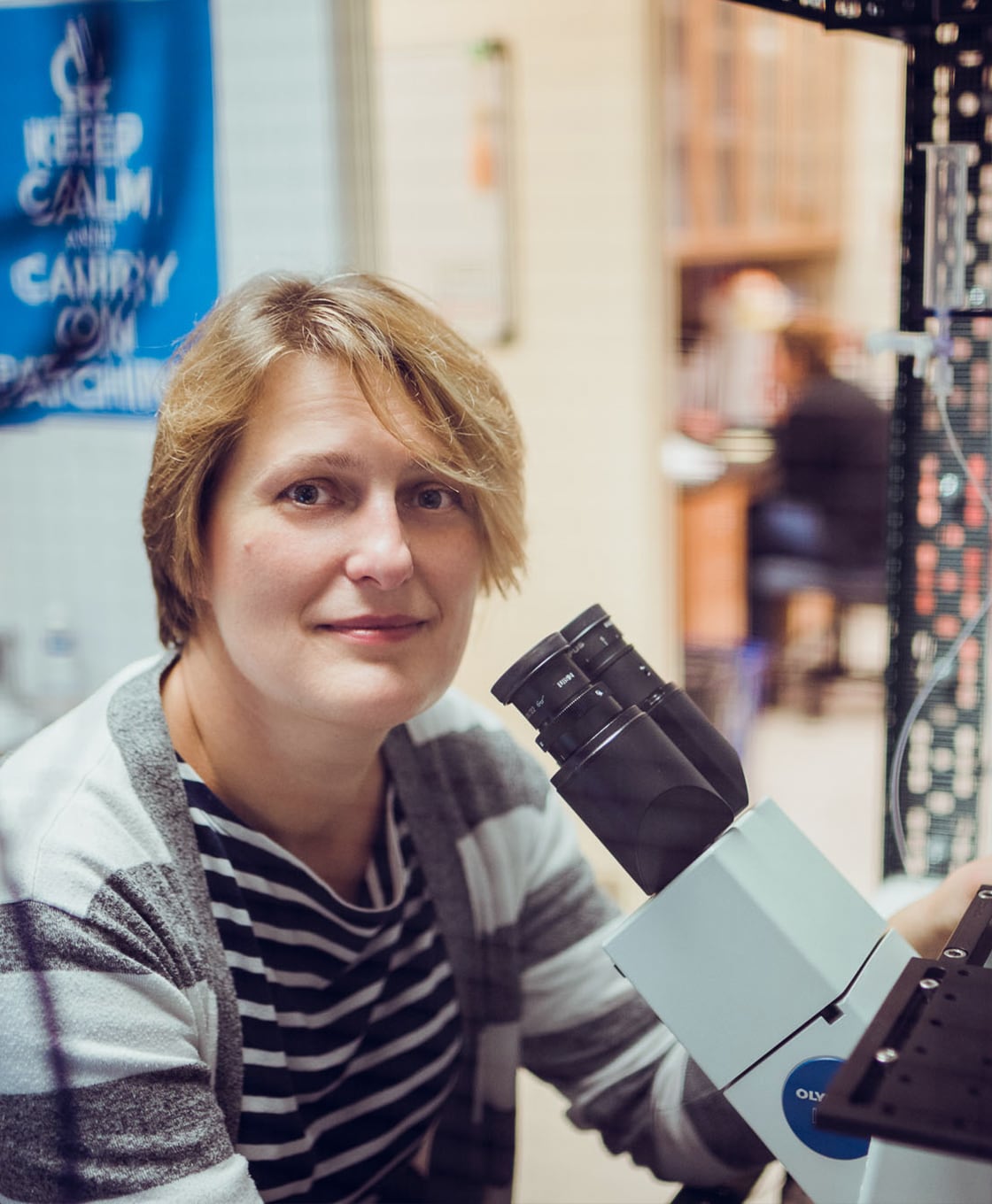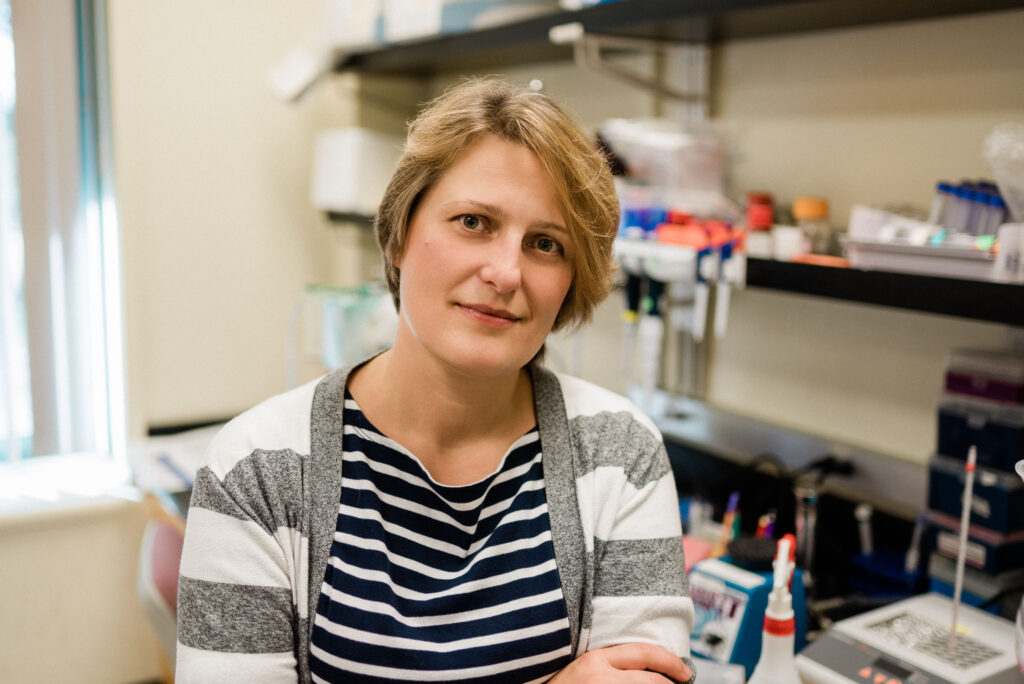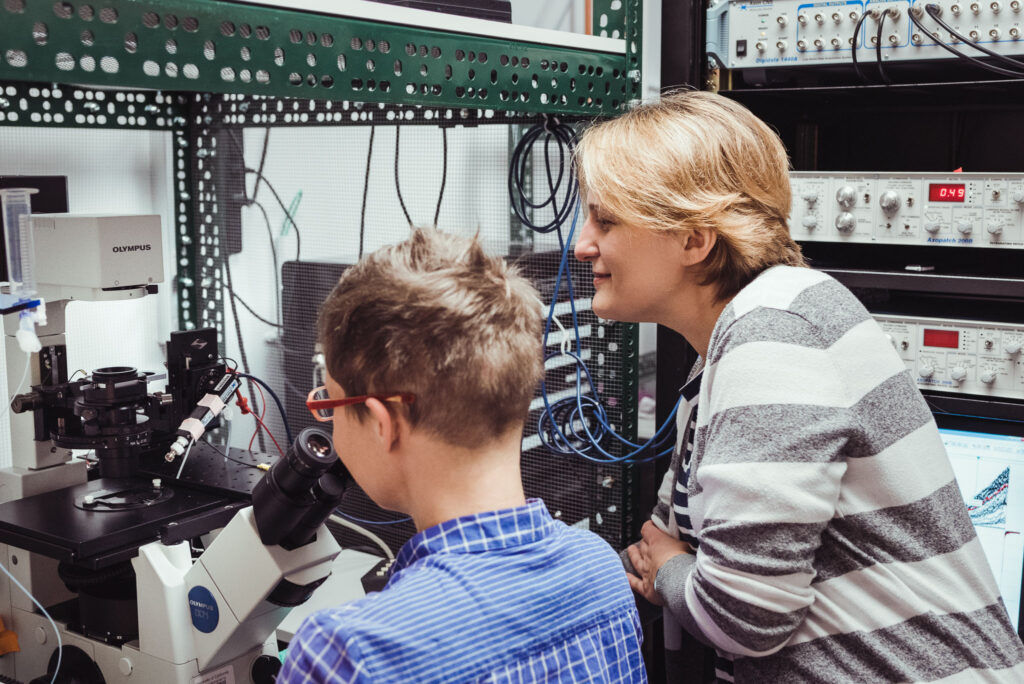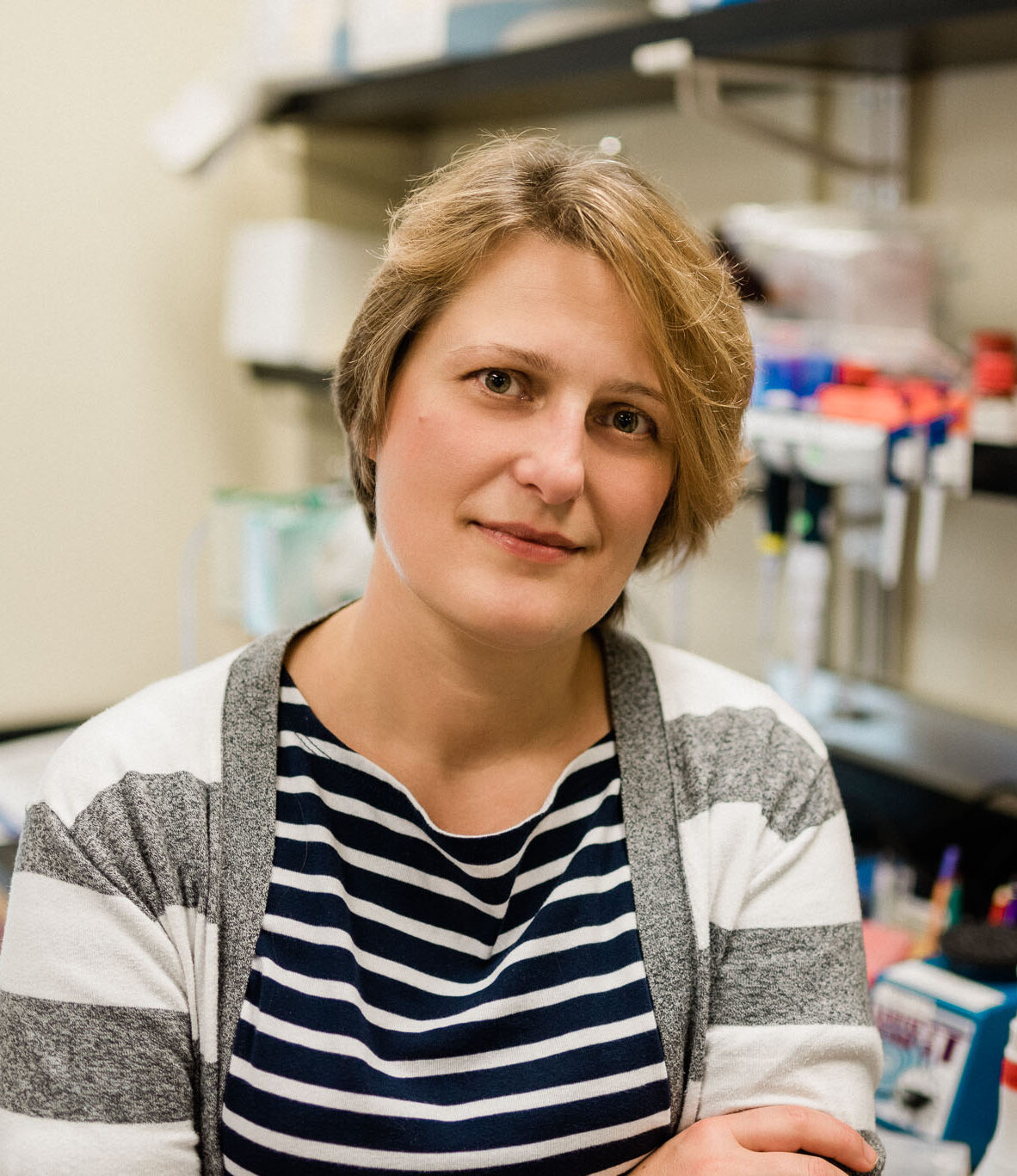
Entrepreneurial Journeys
Faculty FellowsA Bakar Fellow’s Revolutionary Innovations in Non-Hormonal Contraception
by: hannah haas
Background
Dr. Polina Lishko is an associate professor of cell and developmental biology at UC Berkeley. She was born in Kiev, Ukraine, one of the oldest cities in Eastern Europe. Her father is a well-known Ukrainian biochemist, and her mother is also a chemist. From an early age, Dr. Lishko was interested in biology and thought she would end up working in the medical field. By the time she finished high school, Dr. Lishko was more drawn to biology than medicine, so she decided to major in biology and biochemistry once she began her years as an undergraduate at Taras Shevchenko National University of Kiev.
While in college, Dr. Lishko joined a research group at the Bogomoletz Institute of Physiology, a well-known scientific institute in Kiev. They studied biochemistry and more specifically, proteins present in mammalian brains. Dr. Lishko was fascinated by the similarities between certain proteins, as well as their various functions in the brain. Several months into this project, she met one of her future mentors: Alla Tsyndrenko, a biophysicist who was conducting research on bioelectricity. Tsyndrenko offered Dr. Lishko a research assistant position, a life-changing opportunity that helped her determine that biophysics was one of her main passions. From this experience, Dr. Lishko learned about the importance of mentorship in attempting to improve academia and foster diversity.
In 2000, Dr. Lishko received a Ph.D. in biophysics from Bogomoletz Institute of Physiology of the National Academy of Sciences of Ukraine. After she earned her Ph.D., Dr. Lishko spent about six years as a postdoctoral researcher in a neuroscience project at Harvard, during which she studied vision science. Following her time at Harvard, Dr. Lishko moved to California with her husband and daughter. She worked with her husband in the same research group at UCSF that studied mitochondria. Within this research group, Dr. Lishko started her own project to study ion channels in germ cells.

Motivation
Dr. Lishko became extremely fascinated by the complexities and untouched areas of study in reproductive biology. Many times, she would get entirely different results than what she expected to happen during planned experiments. Working alongside her husband was a rewarding experience since they enjoyed talking about scientific topics together and supported each other’s goals. After studying reproductive biology and fertility in this lab for several years, Dr. Lishko decided she wanted to become an entrepreneur by working to create new forms of contraception.
Area of Research
Her research interests include reproductive and developmental biology, ion channels, physiology of fertilization, and early embryo development. With her colleagues, Dr. Lishko began to study the possible utilization of plants in developing new forms of contraceptives. Plants have evolved alongside mammals for millennia, and they produce certain compounds which could modulate the physiology of mammals. Dr. Lishko tested several compounds and found some that had previously been used as contraceptives in traditional forms of medicine around the world. This led to the idea of using these plant-derived compounds as new forms of non-hormonal contraceptives rather than current models that are based on steroid hormones. These studies led Dr. Lishko and her colleagues to start their company.
Where it Leads

Dr. Lishko helped found YourChoice Therapeutics, a company that works to develop non hormonal contraceptives for women. They also research potential male and unisex contraceptive methodologies. It’s possible that some of their products will be finalized by 2025. Since founding the company, Dr. Lishko has left her position to focus on her research at UC Berkeley.
Through her experience as an entrepreneur, Dr. Lishko has learned about the importance of adequate funding for scientific research and mentorship throughout the process. The Bakar Fellows Program has played an important role in funding her research.
Dr. Lishko still has a lot left she hopes to study in the future, including more topics in reproductive biology and aging, as well as possible links between the two. Future discoveries in these fields will allow for major advancements in the extension of human lifespan and solutions for infertility. She looks forward to collaborating with many new labs and scientists with the shared goal of making new discoveries in reproductive biology.
